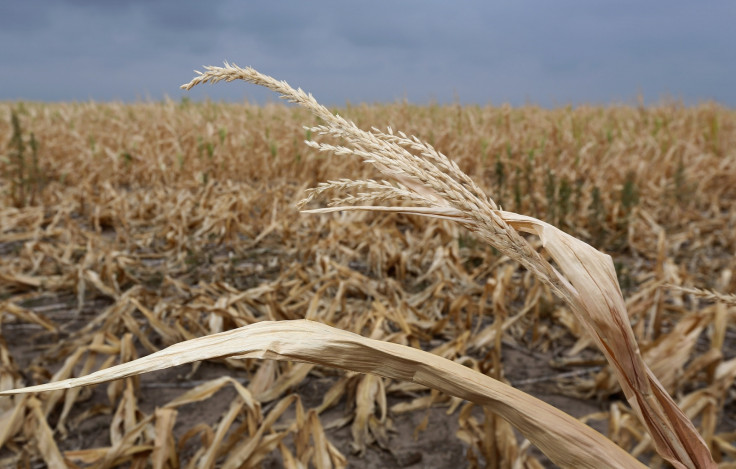Societies will collapse amid food shortages if world remains on current course, says study

Climate change could spark catastrophic food shortages and lead to global societal collapse if society continues on its current course, according to a new scientific model.
The model, developed by Anglia Ruskin University's Global Sustainability Institute, which does not take account of policy shifting in reaction to events and crises, but shows that current environmental and energy policies are unsustainable.
The model envisages climate change, water scarcity, political instability and energy crisis sparking catastrophic food shortages.
Dr Aled Jones, the Director of the Global Sustainability Institute, said, "We ran the model forward to the year 2040, along a business-as-usual trajectory based on 'do-nothing' trends — that is, without any feedback loops that would change the underlying trend," reports Insurge Intelligence.
"The results show that based on plausible climate trends, and a total failure to change course, the global food supply system would face catastrophic losses, and an unprecedented epidemic of food riots.
"In this scenario, global society essentially collapses as food production falls permanently short of consumption."
The institute conducted research for a report this week by Lloyds for the insurance industry.
Just three catastrophic weather events could lead to huge shortfalls in the production of staple food crops, the study finds, leading to huge price hikes and global financial turbulence.
The shortages would result in geopolitical mayhem, civil unrest, and increased terrorism, the study finds.
The global food system, the authors find, is "under chronic pressure to meet an ever-rising demand, and its vulnerability to acute disruptions is compounded by factors such as climate change, water stress, ongoing globalisation and heightening political instability".
The GRO has received Foreign Office funding for its modelling research, which factors in the interconnections between finite resources, planetary carrying capacity, and the human economy.
It draws on the World3 model developed by scientists at the Massachusetts Institute of Technology, which found that humankind faced impending "limits to growth" due to resource and environmental constraints, recalibrating it with new data.
The UN's Food and Agriculture Organization (FAO) calculates that global food production will need to more than double by 2050 to meet global demand.
© Copyright IBTimes 2025. All rights reserved.






















